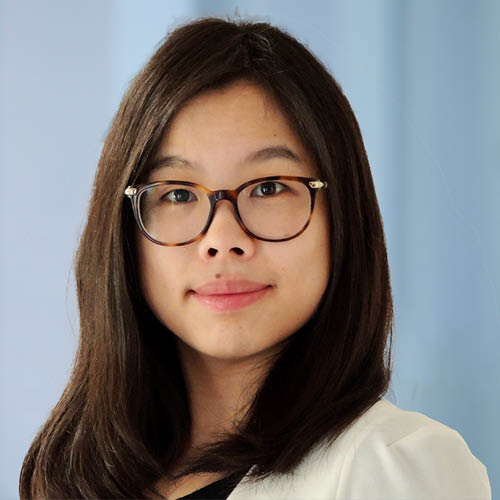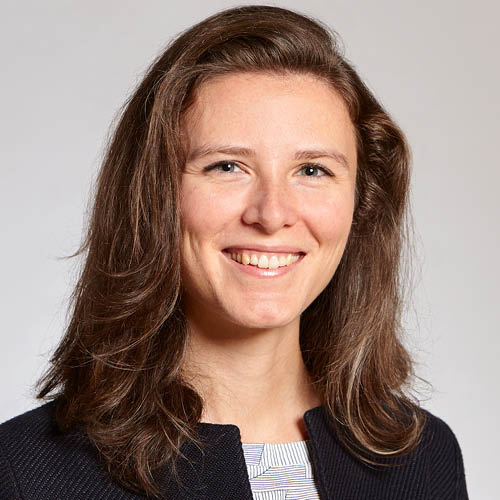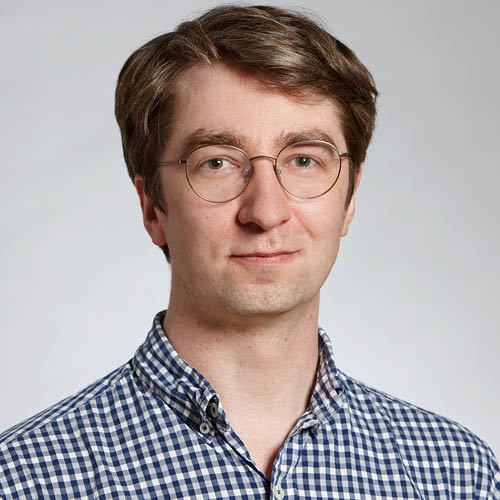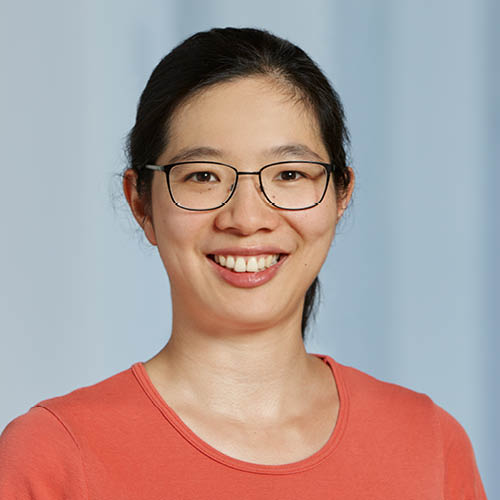Four professors receive SNSF Starting Grants
Niao He, Ana Klimovic, Rasmus Kyng and Fanny Yang are among the recipients of a SNSF Starting Grant for their respective research projects. This grant is currently awarded by the Swiss National Science Foundation (SNSF). Congratulations!
Since Switzerland is now a non-associated third country in the Horizon Europe programme, researchers from Swiss universities are currently not eligible to apply for a Starting Grant from the European Research Council. This funding is a transitional measure offered by the Swiss Confederation covering the ERC Starting Grants as well as the former SNSF funding schemes Eccellenza and PRIMA. An SNSF Starting Grant comes after several years of impactful research and is aimed at scientists wishing to launch an independent project and direct a team in Switzerland.

Four professors from our department have received the Starting Grant. One of them is Niao He. Her project “Optimization for Modern Reinforcement Learning: from Principles to Scalability” was one of the selected projects for funding. Deep reinforcement learning stands as a pivotal force driving the ever-expanding frontier of AI today. However, its successes have been overly reliant on massive computing power, empirical heuristics, and an array of engineering tricks, leaving important questions about the efficiency and trustworthiness of AI systems. In response to these challenges, the project strives to establish optimization foundations for reinforcement learning that embody both principles and scalability. Professor He and her team seek to contribute to the development of decision intelligence with theoretical insights and practical efficiency.
Niao He is an assistant professor in the Department of Computer Science at ETH Zurich and leading the Optimization & Decision Intelligence (ODI) Group. She is also a core faculty member at the Institute of Machine Learning, ETH AI Center, ETH Foundations of Data Science, Max Planck ETH Center for Learning Systems and Illinois Institute of Data Science and Dynamical Systems. Her work lies in the interface of optimization and machine learning, with a primary focus on the algorithmic and theoretical foundations for solving data-driven decision-making problems.

Another chosen project was Professor Ana Klimovic’s “Dandelion: System Software Foundations for the New Era of Cloud Computing”. Serverless computing is a new paradigm of cloud computing, which makes the cloud easier to use and enables cloud platforms to optimize the performance and energy efficiency of the infrastructure under the hood. While serverless computing holds great promise, the system software infrastructure required to run it has not kept up with the requirements of today’s applications. The conventional approach of gradually retrofitting cloud system software that was designed over a decade ago is not sufficient to realize the full potential of serverless computing. Professor Klimovic and her team propose Dandelion, a new platform and reference architecture for serverless computing with the aim to improve the performance, security, and energy efficiency of serverless computing by fundamentally rethinking its programming model and building a fast, secure system software architecture that leverages the capabilities of modern cloud hardware.
Ana Klimovic is an assistant professor in the Department of Computer Science at ETH Zurich. She is a member of the ETH Systems Group, where she leads the Efficient Architectures and Systems Lab (EASL). Before joining ETH, she spent a year as a Research Scientist at Google Brain and completed her Ph.D. in Electrical Engineering at Stanford University. She works on computer systems for large-scale applications such as cloud computing services, data analytics and machine learning. The goal of her research is to improve the performance and resource efficiency of cloud computing while making it easier for users to deploy and manage their applications.

The third project receiving a grant is Rasmus Kyng's “A New Paradigm for Flow and Cut Algorithms”. Graphs are mathematical models of networks, and the study of graph algorithms is one of the most fundamental topics in algorithm design. In 2022, Rasmus Kyng and co-authors developed almost-optimal algorithms for minimum-cost flow. This problem has been studied intensively since the 1930s, as it allows to model a host of important questions, such as how to route commodities through a transportation network, send data through a digital network, how to assign tasks to servers for processing in a data center, or even how to match customers with rides in a transportation market. The SNSF starting grant takes these methods he and co-authors developed as the starting point for solving a broad range of graph algorithms much faster than what is currently known. The proposal will address a number of questions: How can we make modern graph algorithm theory work well in practice? How can we develop fast graph algorithms that avoid randomization and hence always succeed? How can we make graph algorithms that can quickly update solutions when the input data changes over time? And, what is the full extent of problems we can solve using the new blend of data structures and continuous and combinatorial optimization that fueled the recent breakthrough on minimum-cost flow?
Rasmus Kyng is an assistant professor at the Department of Computer Science, ETH Zurich, where he joined in the fall 2019. He finished his doctorate at the Department of Computer Science at Yale in the summer 2017, and then worked in the Theory of Computation Group at Harvard as a postdoc from 2018 to 2019. His research focuses on fast algorithms for graph problems and convex optimization, on probability and discrepancy theory, fine-grained complexity theory, and applications in machine learning.

Professor Fanny Yang will carry out research on the topic “A unified mathematical framework for trustworthy machine learning”.
Fanny Yang is an assistant professor in the Computer Science Department at ETH Zurich. Previously she was a postdoctoral Scholar at Stanford University and a Junior Fellow at the Institute for Theoretical Studies at ETH Zurich. Her research interests lie in theoretically understanding and developing tools in machine learning and statistics that work well. Currently she is particularly curious about the generalisation properties of overparameterized models for high-dimensional data and obtaining more trustworthy machine learning models.